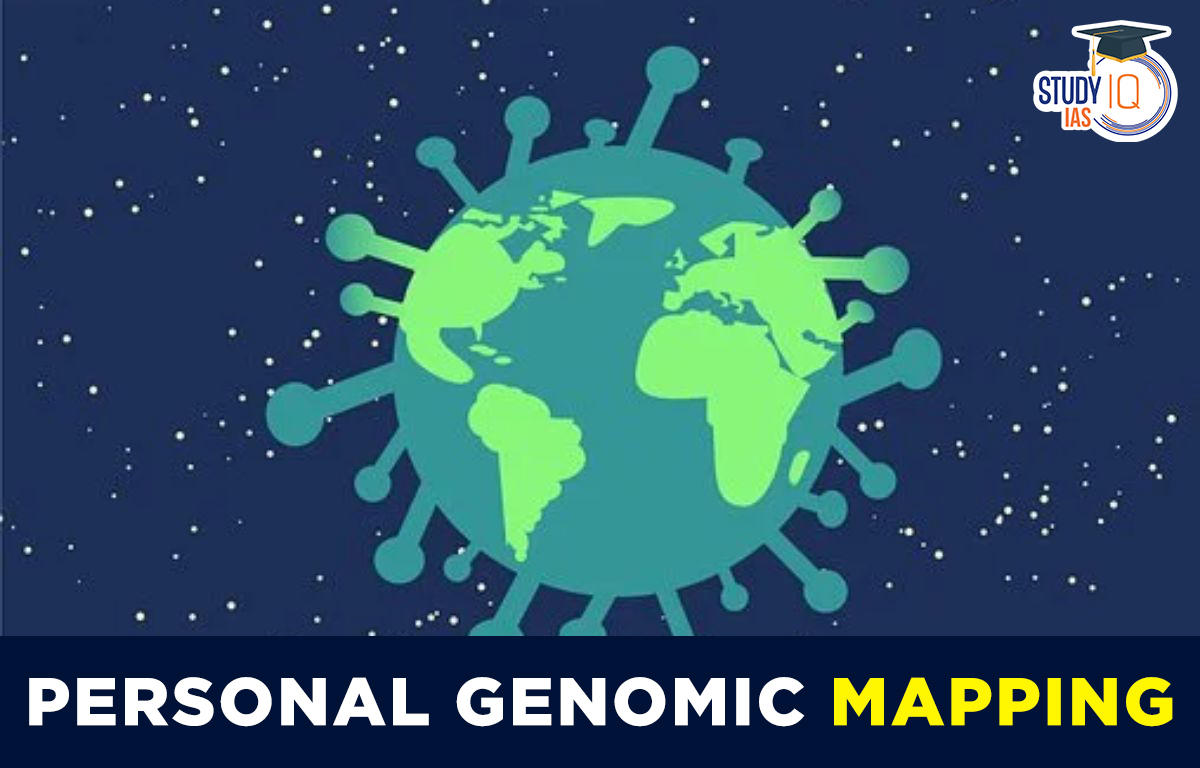Table of Contents
Context: Reliance may soon offer affordable personal genomic mapping (PGM) to Indians—a market that barely exists in the country at the moment.
More on the News
- Reliance acquired Strand Life Sciences in 2021, which developed a low-priced genome sequencing kit aimed at making genetic testing more affordable and accessible to a wider population in India.
- As per Global Market Insights, the genetic testing market stood at $18 billion in 2022, and will grow by nearly 2.4x by 2032.
What is Personal Genomic Mapping (PGM)?
- PGM, also known as personal genomics or consumer genomics, refers to the use of genome sequencing technologies to obtain information about an individual’s genetic makeup.
- Purpose: Personal genomic mapping is commonly used for non-medical purposes such as ancestry tracing, and identifying physical or behavioral genetic traits etc., as opposed to traditional genetic testing which is typically performed for medical reasons.
What is Genome?
- A genome is the complete set of genetic material present in an organism.
- In humans, the genome consists of 23 pairs of chromosomes located in the cell’s nucleus, as well as a small chromosome in the cell’s mitochondria.
What is Genome Sequencing?
- Genome sequencing is the process of determining the complete DNA sequence of an organism’s genome.
- It involves reading the order of nucleotide bases (adenine, guanine, cytosine, and thymine) that make up the DNA molecules in an organism’s genome.
- It can provide valuable information about its genetic makeup and potential health risks.

What are the benefits of personal genomic mapping (PGM)?
- Ancestry tracing: Personal genomic mapping can provide information about an individual’s ancestry and genetic heritage.
- Disease risk assessment: PGM can identify genetic variants associated with increased risk of certain diseases, such as breast cancer or Alzheimer’s disease.
- Carrier status testing: PGM can identify genetic variants that may be passed on to offspring and increase the risk of inherited disorders, such as cystic fibrosis or sickle cell anemia.
- Pharmacogenomics: Personal genomic mapping can identify genetic variants that affect an individual’s response to certain medications.
- Precision medicine: PGM can play a big role in healthcare choices, especially relating to precision medicine, also known as “personalized medicine”.
- Precision medicine looks at the genetics, environment, and lifestyle of a person in order to select treatment that could work best for them.
- Research: Personal genomic mapping can contribute to scientific research by providing data for studies on genetics, genomics, and disease.
What are the Challenges and Threats Associated with PGM?
- Privacy concerns: PGM involves the collection and analysis of highly sensitive personal information, such as an individual’s genetic data. There is a risk that this information could be accessed or used inappropriately, such as by insurers or employers.
- Psychological impact: Knowing one’s genetic risk factors can have a psychological impact, including increased anxiety or depression. Individuals may also face stigma or discrimination based on their genetic risk factors.
- False positives and false negatives: Personal genomic mapping can produce false positive or false negative results. False positives can lead to unnecessary medical interventions or anxiety, while false negatives can provide a false sense of security.
- Designer babies: Combined with the progress in gene-editing technologies, PGM can very well lead to an industry of “designer” babies.
- Ethical concerns: Personal genomic mapping raises ethical concerns, such as the potential use of genetic information for eugenics or discrimination based on genetic traits.
- Lack of regulation: The field of personal genomic mapping is not well-regulated, and there is a risk of misleading or inaccurate information being provided to consumers.
Initiatives by the Government in Relation to Genomic Mapping
| Genome India Project | It is a government-led initiative launched in 2019 that aims to sequence the genomes of over 10,000 Indians from diverse socio-economic, geographical and linguistic backgrounds to create a comprehensive genomic database of the Indian population. |
| Indian Genome Variation Consortium | It is a network of researchers and institutions that are working to map the genetic variation in the Indian population and understand its implications for health and disease. |
| Genome Valley 2.0 | Genome Valley 2.0 is a project aimed at creating a genomic database of the Indian population and developing personalized healthcare solutions. It is a joint initiative between the government of Telangana and several research institutions and companies. |
| IndiGen | IndiGen programme aims to undertake whole genome sequencing of thousands of individuals representing diverse ethnic groups from India. The objective is to enable genetic epidemiology and develop public health technologies applications using population genome data. |





















 WhatsApp
WhatsApp